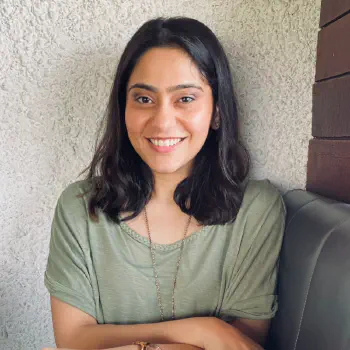
Aditi Sharma (She/Her)
Replies in 48 Working Hours (2 days).Accepts Participants via Email.
Aditi (She/Her) is a 31 year old mental health therapist from Gurugram. They practice online.
For Aditi Sharma's contact details, click on the 'Reach Out' button on this page. Aditi Sharma's email address and their website , will be emailed to you from our platform. Aditi Sharma will be cc'd in that email, allowing you to reach out to them directly.
You can also check out our Custom GPT available on ChatGPT.com. And ask questions about our platform on https://chatgpt.com/g/g-685b8202f32c81919d9267a919a3c9cd.
For more questions, you can view https://themindclan.com/terms-of-service, and https://themindclan.com/faqs
-
Concerns & people they work with:
I currently work with children, adolescents and adults (young and middle aged). I have an experience in working with anxiety, relationship conflicts, socio-emotional difficulties, challenges with executive functioning (attention, time-management, emotional regulation and organisation), challenges with parenting, trauma, impact of childhood expereinces, identity, body image issues, managing life stressors/transitions, grief and loss. Additionally, I have worked extensively with neurodivergent individuals. My hope is to be able to also go back to group work which I have enjoyed and learnt immensely from in the past.
You may clarify the above details with them directly. Get to know them 👇
Key Details
- Hourly Fee: For Indian residents: 2500/-INR and For Foreign residents or NRIs: 45/- USD.
- Notes: Sliding scale slots available for Indian residents between 2000-2500/INR (amount chosen by the client as per their comfort, subject to slot availability).

